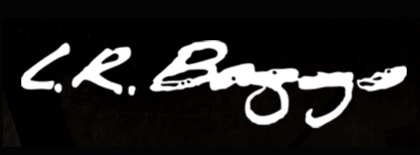Substantiate: substantiate (səbˈstanCHēˌāt) verb – Provide evidence to support or prove the truth of.
Happy Tuesday Fellow Wholetonians,
Have you ever considered that only doing good requires substantiation? I am serious! If a company announces a charitable campaign, people want to see proof that good is being done; on the other hand, if company is alleged to be doing something bad, people are quick to believe the claims without proof. Imagine if a corrupt business suddenly disclosed that it had poisoned third world countries with pesticides for profit. Do you think there would be a public outcry for substantiation? Would the headlines read, “Company says they knowingly poisoned several third world countries with their pesticides for profit, but we don’t believe it”? Probably not. The truth is, if something is too bad to believe, people believe it. But, what if it’s too good to believe?
Acts 10:38 says that God anointed Jesus of Nazareth with the Holy Spirit and with power, and because God was with him, he went around doing good and healing everyone who was oppressed by the devil.
Jesus spent His time healing the sick and freeing people from spiritual oppression, yet the Pharisees constantly harassed, questioned, belittled, insulted, and eventually crucified Him for doing so! Here are just a few of the good things Jesus did because He loved people and was compelled to do only good:
Matthew 11:5 - The blind receive sight, the lame walk, those who have leprosy are cleansed, the deaf hear, the dead are raised, and the good news is proclaimed to the poor.
Ah, the Pharisees. Why was there no need for them to substantiate their disparaging claims, corrupt practices, extortion, hypocrisy, or even crucifixion of a purely innocent man (who, by the way, happened to be God’s only Son)? Instead of releasing Jesus (who was incarcerated on false charges and beaten within an inch of his life), the Pharisees released Barabbas, a notorious criminal and murderer, in Jesus’ stead. Jesus’ record of doing good acts was real, substantiated by many witnesses, but the evil claims of the Pharisees did not need substantiation to take hold among the people.
Here is something to consider: if you are doing something good for the sake of mankind, the burden of proof (substantiation) is NOT on your shoulders but instead rests squarely on the shoulders of your accusers to prove that what you are doing is NOT good! If you are doing good, there will be multitudes of testimonies from the people you helped; these testimonies more than substantiate any claims made about your actions.
If Jesus was walking the Earth today, we might be deceived into believing that things would have been different for Him due to our kinder, more tolerant and sophisticated culture. Unfortunately, I think not! Let’s examine just one notable healing mentioned in the Bible and consider the ramifications today.
Jesus encounters a man who was blind since birth. Jesus takes some dirt from the ground, mixes it with His saliva, rubs it into the man’s eyes, tells the man to rinse the dirt off in the Pool of Siloam, and the man’s eyes are instantly, 100% HEALED. What do you think the response would be today? Jesus would probably be arrested, fingerprinted, interrogated, and charged with practicing and prescribing medicine without a license, and maybe battery, too. Next, forensic experts would likely analyze the dirt, take a saliva sample and then a water sample from the pool of Siloam, and conduct a series of tests to substantiate the healing power of the mud. I think you get the picture!
If you, like Jesus, exist to help people, expect some to question your motives and your modalities, but, for goodness sake, NEVER STOP doing good! We were created to do good works without explanation or substantiation. The following verses contain all of the substantiation goodness requires:
Galatians 6:9 - Let us not become weary in doing good, for at the proper time we will reap a harvest if we do not give up.
Ephesians 2:10 - For we are God's handiwork, created in Christ Jesus to do good works, which God prepared in advance for us to do.
Psalm 37:3 - Trust in the LORD and do good. Then you will live safely in the land and prosper.
Matthew 5:16 - In the same way, let your good deeds shine out for all to see, so that everyone will praise your heavenly Father.
In a culture that more and more calls that which is good, “evil” (and that which is evil, “good”), it is imperative that we encourage each other to continue doing good anyway!
Let me leave you with two questions I ask myself everyday to discern the true motives of my heart:
Q: “Why do I do what I do?”
Q: “Who do I do it for?”
Only you are qualified to answer!
Have a GOOD day,
Michael S. Tyrrell






